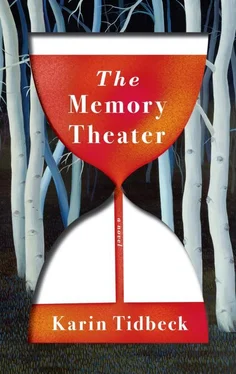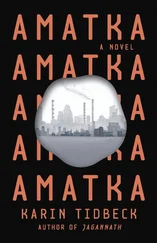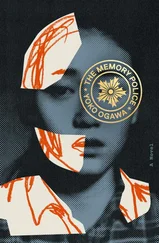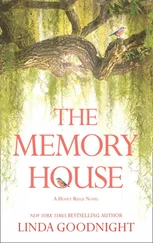“Will we see you again?” Albin asked.
“Perhaps,” Ghorbi replied. “I have interfered as much as I can. I want you to find Augusta. I want you to be well. But there are rules I must follow.”
She walked off in a different direction, robes billowing behind her, and was quickly out of sight.
Dora dug into the ground with her hands until she was standing knee-deep in a pit about two paces across.
“Dora,” Albin said, “we have to tell them about Apprentice.”
Dora looked up at him. “I buried her on the mountain.”
“So you told me. We have to tell them.”
“Will they be angry?”
“Probably. Are you afraid?”
Dora shook her head. “No.”
“I am.” Albin gnawed on his left thumb. “I don’t know if they’re people at all.”
“Of course they are,” Dora said. “Just not people like us.”
“Journeyman fell in love with you.”
Dora considered this, then nodded.
“Did you fall in love with him?”
“I feel things about him,” Dora said. “I like feeling them.”
“So are you nervous about seeing him again?” Albin asked.
“Why?”
“He might be angry.”
“Because I buried Apprentice?”
Albin made a frustrated noise. “No, because we have to tell them Apprentice is dead . They might think it’s our fault. And they might hurt us. They can do magic. Like the lords and ladies.”
“That makes no sense,” Dora said. “It’s not our fault.”
“They might not see it that way.”
Dora shrugged. “I can’t do anything about that. They’ll be angry, or they won’t be,” she said. “But until you know, there’s no use being afraid. And if they’re really powerful, then there’s nothing we can do. And then there’s no use being afraid either. I promise I’ll be afraid later if we need to.”
Albin chortled, then burst into laughter. Dora smiled back at him. Then Albin hopped down into the pit. The ground gave way under their feet.
Dancing. Drinking. Eating. Hunting. The Gardens, a place of eternal youth and beauty. Augusta feasted, slept, dressed herself, feasted, slept. It was not so difficult to forget about mountains, cities, a multitude of other worlds. To forget about wearing someone else’s skin, peeling it off like an old glove. Augusta was home. She would never leave.
—
On the croquet lawn, Mnemosyne clapped her hands three times.
Euterpe walked up to Augusta and handed her a club.
“It’s Augusta’s turn,” she called out.
A polished croquet ball sat in the middle of the lawn. Augusta walked out to it and swung her club. The ball landed on the arm of a page, who doubled over. Everyone else clapped their hands and cheered. The game was afoot.
Augusta watched as the others played. She held out her hand for more wine. Her head felt blurry. Her vision swam. Perhaps she should have a canapé.
She was startled by a loud crack. Cymbeline and Virgilia had hit Augusta’s ball with theirs so hard that it shot into the bushes. The others jeered at Augusta.
“You’re out!” Cymbeline called.
Augusta sneered at her and dropped the empty wineglass on the ground.
The others continued the game as Augusta wandered in among the trees to find her ball. Her face was numb with drink. It was difficult to see details in the shrubbery. Augusta pushed her way out of a dog-rose bush, and there it was: the ball, sitting next to the corpse of an old man.
Augusta crept closer. The man was old and hoary, his hands large and callused, his face contorted in a silent scream. He looked familiar somehow, but Augusta couldn’t quite place him. Why would he be so familiar? And what had brought him here? Only children ever ventured into the woods by mistake. A gold chain trailed from one of his pockets. Augusta bent forward, grasped the chain, and gave it a tug. A shiny locket emerged on the end of the chain, engraved with flowers. Augusta swung the locket up in the air and let it land in her palm. The touch sent a little chill along her arm, and for a moment she felt faint. She wrapped the locket in a handkerchief she found in the sleeve on her shirt, put it in a pocket, and returned to the croquet lawn. Never mind the corpse. She had to win the game.
There was a rustle in the undergrowth as she made her way back to the lawn. Augusta turned around; a shadow receded behind a tree. Had she seen a pair of yellow eyes? She shook her head. No. Silly. There were only the lords and ladies in this place.
Augusta lay on her side in her bed, the little locket resting in her hand. It popped open when she pressed a button on the side, and closed with a sweet little click. She wanted to lick it and eat it and crush it at the same time. There was something wonderful about it and something very bad. She wasn’t sure what. But pages knew these things. They had seen the world outside. She called for her page.
A bell rang by her door and her page stepped inside. He stood in the middle of the room, with the audacity to stare directly at Augusta. She slapped him with the back of her hand. He shrunk back and looked down at the floor. He walked over to the bed and started to remove his clothes.
“No, not now,” Augusta said.
The boy froze halfway out of his coat. Augusta showed him the locket.
“You will tell me what this is,” she said.
“Mistress doesn’t know?” he replied.
Augusta slapped him again. This time her nails left marks. His eyes watered.
“You will tell me what this is,” she repeated.
He sniffled. “It’s a watch.”
“And a watch measures time,” Augusta said to herself.
“It does,” the boy affirmed.
“Tell me more,” Augusta said.
She pulled the boy down on the bed next to her and put her arm around his shoulders. He pointed at the different parts of the watch, explaining their functions. The rods were called hands, and chased around the clockface in step with time. The clockface indicated where in time one was located. It made Augusta shudder violently. Time was an abhorrent thing, a human thing. It didn’t belong here. It was that power which made flesh rot and dreams wither.
“Does it measure time?” Augusta said. “Or does it just move forward and call that time?”
The page blinked. “Time is time,” he said.
“Time is time,” Augusta echoed. “If it goes, it goes forward.”
“That’s what I was about to say,” said the page.
“I know,” Augusta replied. “This has happened before.”
Augusta twisted the little knob on the side of the clock, and the longest hand started to move. A faint ticking sound filled the bower. The air trembled.
“This has happened before,” Augusta said again.
She let go of the boy’s shoulders, and he stood up. His shape was blurred somehow.
“I can’t let you leave,” Augusta said. “Not again.”
“What do you mean, mistress?” said the boy.
“What are you called?” Augusta asked.
“Yarrow, mistress,” the boy said.
Augusta blinked. “Not Thistle?”
“There is no Thistle here,” Yarrow replied.
Augusta picked up a long knife that lay on her vanity. She grabbed Yarrow’s jaw and quickly slit his throat. He gurgled as blood gushed down his shirt.
It wasn’t a pit that they fell into, but a tunnel that twisted back and forth. Then, bright light. The impact came fast: rubble and gravel, sliding away under Dora’s feet. She tumbled down a slope and came to a rest on her side, the satchel digging into her shoulder. Behind her, Albin yelled in terror on the way down. She grabbed his arm as he came by.
They sat halfway down an enormous mound of gravel. Below them stood the ruins of a town: heavy stone buildings with their roofs blown off and huge holes through which the overcast sky showed; here and there, the burnt skeletons of wooden houses. The streets were strewn with debris.
Читать дальше










![Карин Тидбек - Аматка [ЛП]](/books/438406/karin-tidbek-amatka-lp-thumb.webp)

